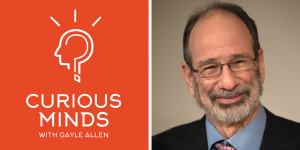The NY Times has the story:
Scientists Seek Moratorium on Edits to Human Genome That Could Be Inherited
"An international group of scientists meeting in Washington called on Thursday for what would, in effect, be a moratorium on making inheritable changes to the human genome.
"The group said it would be “irresponsible to proceed” until the risks could be better assessed and until there was “broad societal consensus about the appropriateness” of any proposed change. The group also held open the possibility for such work to proceed in the future by saying that as knowledge advances, the issue of making permanent changes to the human genome “should be revisited on a regular basis.”
...
“The overriding question is when, if ever, we will want to use gene editing to change human inheritance,” David Baltimore said in opening the conference this week.
...
"The meeting was prompted by a new genetic technique, invented three years ago, that enables DNA to be edited with unprecedented ease and precision. The technique, known as Crispr-Cas9 and now widely accessible, would allow physicians to alter the human germline, which includes the eggs and the sperm, to cure genetic disease or even enhance desirable physical or mental traits.
...
"“If we are going to view certain applications of human genome editing as permissible, can we draw a line and not throw out legitimate medical applications in order to stave off those that are less palatable to most of us?” Dr. Daley asked.
"Other scientists suggested that the possible risks of human genome editing would be rapidly reduced as the techniques were refined. “Many of these technologies are improving so fast it’s hard to measure,” said George Church, a professor of genetics at the Harvard Medical School. Erroneous cuts made by Crispr-Cas9 can now be reduced to less than one per three trillion base pairs of DNA; the human genome is three billion base pairs in length.
“The concept of a ban on gene editing does not make sense,” Dr. Church wrote in the current issue of the journal Nature. “Banning human germline editing could put a damper on the best medical research and instead drive the practice underground to black markets and uncontrolled medical tourism.”






